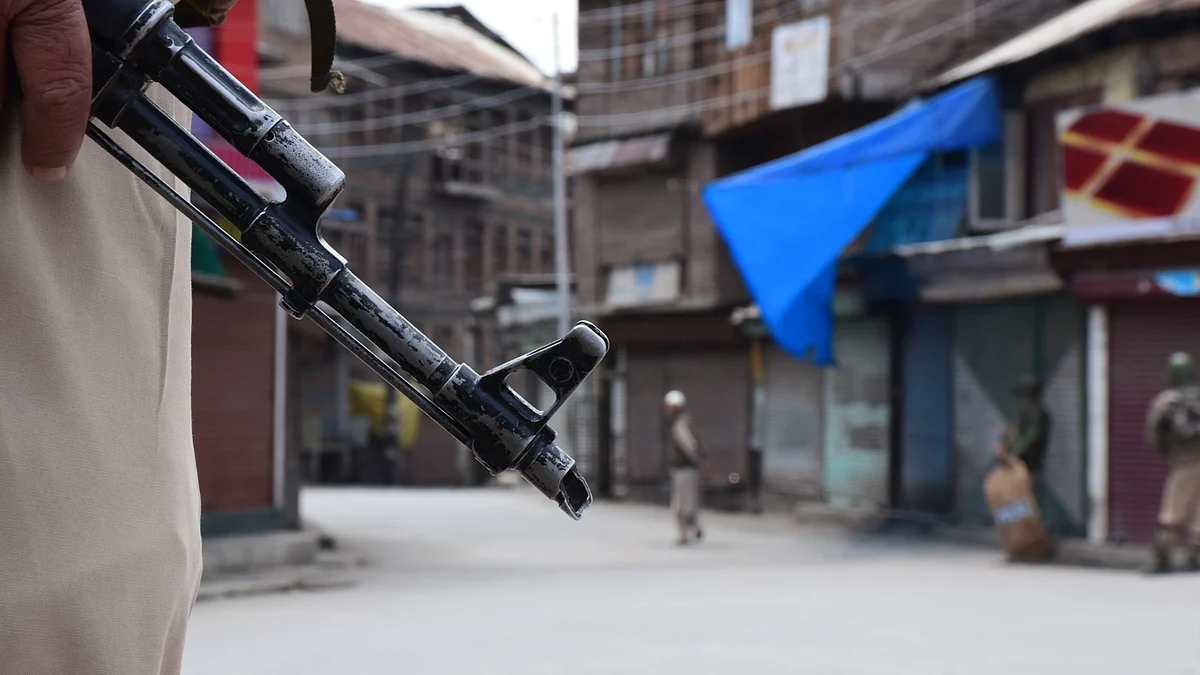India
Govt ends unilateral Ramzan truce; 2 militants killed in Kashmir
As militant activities continued even after a month-long Ramzan truce in Jammu and Kashmir, the Centre on June 17 decided to resume it’s counter-insurgency operations

A day after the Centre decided not to extend the ceasefire or non-initiation of combat operations (NICO) —which was earlier announced on May 16—in Jammu and Kashmir, at least two militants were killed on Monday by the Army in an anti-militancy operation in Panar forest area of Bandipora.
The Army had reportedly surrounded the area after militants fired at a patrol party on June 9. On June 13, two militants and a soldier were killed in the operation.
Chief Minister Mehbooba Mufti’s repeated appeals to militants as well as separatists to respond to the Centre’s gesture evoked no positive response. In fact, violence spiked considerably after declaration of unilateral truce during the holy month. According to media reports, 56 people including 17 civilians, 22 militants from the Lashkar-e-Toiba, Hizbul Mujahideen, Jaish-e-Mohammad and Al Badr groups, five policemen, four army personnel and eight BSF men were killed in 20 grenade attacks and 50 militant attacks, during Ramzan.
Police said that the 20 grenade attacks in busy public places and on security personnel during Ramzan left as many as 62 civilians and 29 security persons injured. These attacks, according to police, were the highest for a month in the last few years.
Notably, many in the security establishment viewed the murder of Shujaat Bukhari, editor Rising Kashmir, outside his office in Press Enclave in the heart of Srinagar on June 14, as failure of the unilateral truce. Many observers felt that the incident was a grim reminder of early 1990s, when militancy was at its peak in Kashmir Valley.
Published: 18 Jun 2018, 5:37 PM IST
According to media reports, 56 people including 17 civilians, 22 militants, five policemen, four army personnel and eight BSF men were killed in 20 grenade attacks and 50 militant attacks, during Ramzan. Police said that the 20 grenade attacks in busy public places and on security personnel during Ramzan left as many as 62 civilians and 29 security persons injured
Published: 18 Jun 2018, 5:37 PM IST
Union Home Minister Rajnath Singh in a series of tweets said that the decision to not conduct counter insurgency operations in the state had been taken "in the interests of the peace loving people of Jammu and Kashmir, in order to provide them a conducive atmosphere to observe Ramzan".
"The Government of India decides not to extend the suspension of operations in Jammu and Kashmir announced in the beginning of Ramzan," a Ministry statement said. It said the "security forces are being directed to take all necessary actions as earlier to prevent the militants from launching attacks and indulging in violence and killings".
Published: 18 Jun 2018, 5:37 PM IST
“Sad, important measure that could have set stage for purposeful dialogue not reciprocated except with provocative attacks. It could have led to way out of bloodshed, destruction. But for that everyone had to be on board. Reiterate to strive for peace with dignity,” Naeem Akhtar, public works and culture minister, tweeted on Sunday.
Published: 18 Jun 2018, 5:37 PM IST
Jammu and Kashmir ruling Peoples Democratic Party (PDP) spokesman Rafi Ahmad Mir expressed unhappiness over the Central government's decision not to extend the ceasefire. Mir said: "The party was not happy with the decision announced by the Union Home Ministry in view of the unending violence during Ramadan, blamed mostly on militants."
Former Chief Minister Omar Abdullah said: "The ceasefire was the Centre's initiative... Its failure is the failure of everyone who wanted to give peace a chance."
Minister of State in the Prime Minister's Office, Jitendra Singh, said the priority for the government was to conduct the upcoming Amarnath Yatra and the decision not to extend the truce followed inputs from security forces and intelligence agencies.
When the conditional Ramzan ceasefire began on May 16, it was assumed that it would be extended to cover the upcoming Amarnath Yatra. But unending violence by militants, who continued to target and kill security personnel, forced the government's hands.
“It was nothing more than temporary suspension of the killing spree of Kashmiris by Indian armed forces," said an activist of the separatists who did not want to be identified by name. Some Kashmiris argued that the resumption of offensive operations against militants only proved that there had been no serious application of mind when the ceasefire was announced.
Pertinently, more than 163 people including 93 militants, 34 security personnel and 36 civilians have been killed in militancy-related violence in the trouble-torn state till June 10 this year alone, according to data compiled by the South Asia Terrorism Portal, run by New Delhi-based Institute for Conflict Management.
Published: 18 Jun 2018, 5:37 PM IST
With IANS inputs.
Published: 18 Jun 2018, 5:37 PM IST
Follow us on: Facebook, Twitter, Google News, Instagram
Join our official telegram channel (@nationalherald) and stay updated with the latest headlines
Published: 18 Jun 2018, 5:37 PM IST